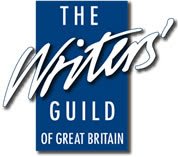For a debut novel that pays tribute to the wonderful power of books, it seems only fitting that the Writers' Guild meets its author on
National Library Day. 'National' in this case meaning 'American'. English writer
Wesley Stace lives in brownstone Brooklyn. His novel
Misfortune is published in the U.K. by Jonathan Cape on May 19. On May 29, Stace appears at the
Hay-on-Wye festival, which calls his book a "vivid Gothic masterpiece".
On the day of the interview, a book
review in the New York Times calls 18th-century bawdy London a "precursor of our own ambiguous times." Hm. Ambiguous maybe in the sense that American libraries are reporting book-lending stats to the FBI. But a few
gay guys on a mission to give the country a make-over or people running out of acronyms to pigeonhole themselves into a sexual category hardly make for bawdiness. In America, sex is a competitive sport. Pleasure doesn't seem relevant, which it was for those 18th-century Clerkenwell barmaids.
Real sexual freedom is the main theme of
Misfortune, whose protagonist(e) Rose is raised as a girl by the richest man in 19th England and a surrogate librarian mother. When she hits puberty, the father prefers not to face reality - but after a soul-searching trip to Narcissus-land in a mythic Hellenic part of Turkey, Rose decides to stick to her guns.
Wesley Stace: "
Believer magazine published this phenomenal article about the Michigan's
Womyn Festival that only women are allowed to attend. Five years ago, they threw out transsexuals, who went on to start
Camp Trans. It's like civil war between the two, which is the saddest thing, if you think that's what the sexual revolution and gay rights have led to. Rose would find all that insane. Not because she's old-fashioned, but because of her character.
In this huge world where everything is permissible, everything is still very much pigeonholed. In fact its getting worse pigeonholed, because things are easier to describe and you can find exactly what you want on the internet. Twenty years ago, you would have a hard time finding American fans of English football. Now you can even find the people in New York who support
Arsenal."
Misfortune grew out of the ballad
Miss Fortune that Wesley Stace wrote for his alter ego John Wesley Harding, as part of his long-standing career as a singer/songwriter with a loyal American fanbase. That was eight years ago. How did it grow into a 544 p. novel?
WS: "I never wrote more than a hundred pages of my other novels. They were all set in the present, they were very memoir-ish and I didn't enjoy writing any of them for even one word. When I was writing in the present tense [interrupts: "What was that?" His dog Grey is digging up something in the garden] I found myself continually distracted by things in the present. I would want to make fun of Diana Ross, Subarus, your iPod and celebrate them and talk about them. Starting this book I knew that I'd bitten off more than I could chew and that I would finish it. I knew it was going to take years. By setting it in the past, I could have a fictional character set in a completely blank space. Then I would start to get pictures in my head. Without all the distractions, I was able to let my characters talk about essential things: life, love, art, books, their relationships, their conflicts."
At times,
Misfortune flirts with Dickens' epic swagger and Henry Fielding's verbosity, but ultimately, Rose's voice is strong, confident and contemporary. Early on, Stace, who feels "very much like an English writer', got a priceless bit of advice from
Rick Moody.
WS: "He said: 'I'm giving you the exact advice you don't want to hear. This is not where American literature is at right now, so you need to finish it first, and make sure it's fully thought-out.'
Misfortune is completely irrelevant to modern American literature. I might have more in common with women writers, like
Anne Patchett or
Katherine Dunne who write larger books. If you compared that to the thin books written by men who must have agonised over every single word...My book is written in the spirit of: 'I have a big story to tell, let's tell the story'."


